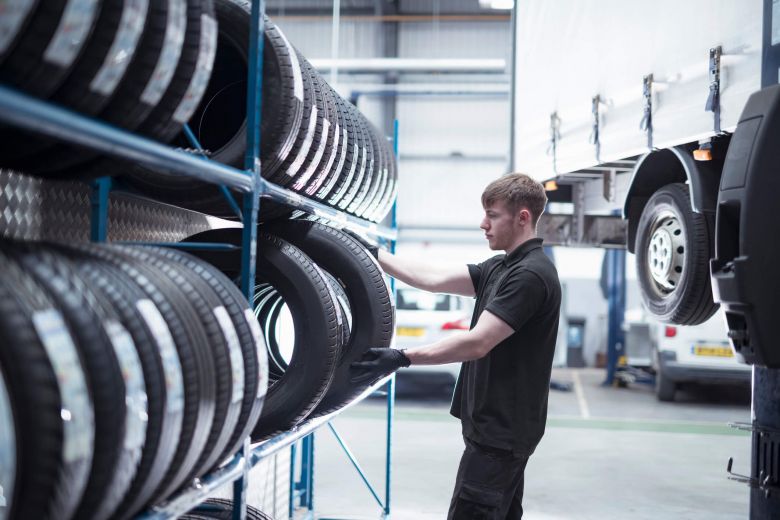However, over time, tyres degrade and wear away, which leads to you having to buy new tyres.
But once you have your replacements, what happens to your old ones?
In a world where every industry is looking at the best ways to be ‘greener’ and environmentally friendly, motoring companies are no different.
This guide looks at all you need to know about correctly disposing or recycling your old tyres.
How long do tyres last?
Although the lifespan of a tyre can vary depending on the brand, design, driving condition, road conditions, and quality, they are designed to last for about 30,000 to 80,000 miles.
Regular car maintenance can help extend the life of a tyre.
However, your tyres will be checked during the annual MOT – and if you have a service on your vehicle.
Some high-quality tyres can last significantly longer, while others may wear out more quickly. Your driving style will also impact on the wearing on the tyre.
Having the correct tyre pressure is something that all car owners should be checking on a frequent basis.
Drivers need to look out for uneven tread wear, bulges, cracks, or low tread depth.
If you notice any of these signs or if your tyres are older than six years (regardless of mileage), take your car to a trusted local garage and have them professionally inspected and potentially replaced.
What are tyres made of?
All types of road legal tyres are made of a combination of various materials that work together to provide strength, durability, and performance.
A typical tyre will include rubber, a range of strong fabrics, steel (sometimes other similar metals), carbon black, silica, and a number of chemicals and additives.
The combination and arrangement of these materials, along with the tyre's tread pattern and design, determine the tyre's performance characteristics, such as traction, handling, and durability.
Tyre compositions will vary between different types of tyre styles and manufacturers.
How should you dispose old tyres?
When it comes to disposing of old tyres, it's important to follow proper guidelines to ensure environmental responsibility.
These can be found in your car owner’s manual, on the manufacturer’s website, or by an expert at your local garage.
But when it comes to correctly disposing of your tyres, what should you do?
Your first option is to check with your local mechanics or tyre retailer. Many of them accept old tyres for recycling or proper disposal – and some will even take money off new ones if you buy a completely new set of tyres.
Drivers can also check with the tyre manufacturers themselves. They often recycle their own brand as part of their efforts to reduce the carbon footprint of the company and wider industry.
Depending on where you live in the UK, there may even be an option to take your old tyres to your local recycling centre. Check with your local council for guidance.
Finally, there are now specific drop-off locations for old tyres available in many larger cities. These often are a part of the local recycling organisation that works with the council.
No matter what option you choose, it's essential to avoid improper disposal methods like burning or dumping tyres, as these can harm the environment and pose health hazards to people and wildlife.
Can you recycle tyres?
Yes, tyres can be recycled – and if you are looking at getting a new set of tyres, you should be looking at the best options to recycle.
Recycling tyres is an important step in responsible waste management as it helps to reduce environmental impact and promote sustainability within motoring.
When an old tyre is taken for recycling, it will often be shredded into small pieces.
These shredded can then be used as raw material in various applications for road construction, or as filling material on pavements, playgrounds, or sports areas.
They can also be used as a fuel source in cement kilns or industrial boilers.
At a tyre recycling facility, they used specialised equipment to separate the different components of the tyres, that can then be recycled and used in various ways.
Recycling tyres not only helps to reduce waste but also conserves resources and contributes to a more sustainable future.
If you are looking to buy new tyres, be sure to recycle your old ones!
Tyre disposal
Tyre disposal can be an environmental challenge, but there are several responsible methods to handle it - and they don't all involve being reused on a vehicle!
Many recycling facilities specialise in tyres where they can break down tyres into usable materials like rubber, steel, and textile fibers.
Some local governments in the UK offer collection programmes for used tyres. Check with your local waste facility for details. These are then used in other 'green' projects.
Companies have found ways of repurposing tyres for garden projects, playground equipment, or art installations.
However, while it’s not ideal, some tyres may end up in landfills if no other options are available. However, this is discouraged due to the environmental impact.
Get a service or repair at home
RAC Mobile Mechanics can come to you, saving you the hassle of going to a garage.












